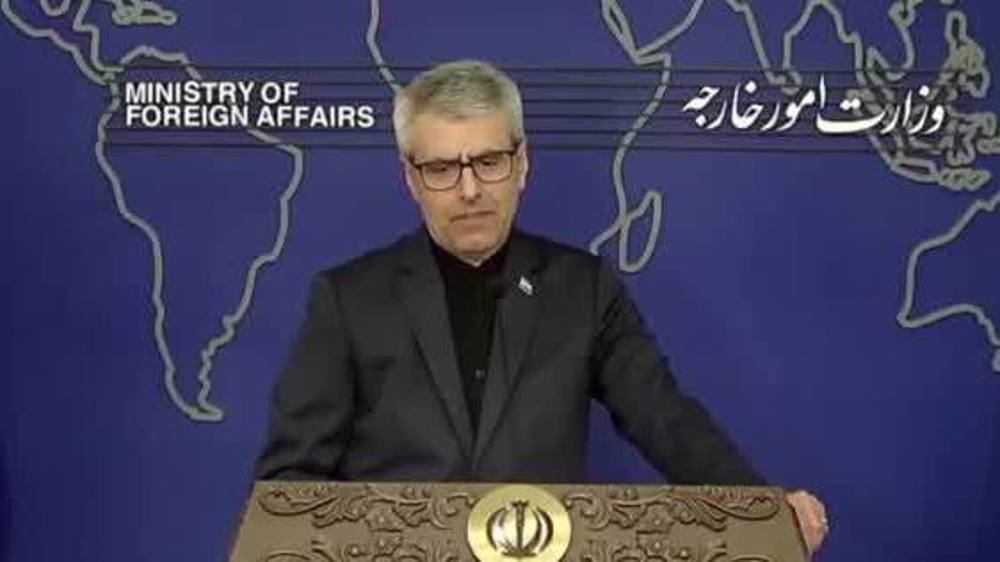Iran nuclear deal vital for strategic stability: Russia
Russian Foreign Minister Sergei Lavrov has warned against breaking up the Iran nuclear agreement with world powers, saying it is "vital for strategic stability."
Speaking at an international non-proliferation conference in Moscow on Friday, Lavrov said any unilateral changes to the 2015 agreement, known as the Joint Comprehensive Plan of Action (JCPOA), "could bury this agreement, which is vital for strategic stability and nuclear non-proliferation."
Lavrov described any prospect of returning to the pre-JCPOA situation as “impossible,” saying, “Restoring the UN Security Council sanctions [on Iran] is out of the question.”
The Russian foreign minister rejected the need for further inspection of Iran’s nuclear sites beyond the JCPOA requirements, noting that the International Atomic Energy Agency (IAEA) “performs regular checks and confirms their [Iran’s] strict fulfillment of obligations.”
Touching on US demands for renegotiating the JCPOA, Lavrov stated that any changes to the deal would require the approval of all the parties to the accord, including Iran.
The comments came a week after US President Donald Trump refused to formally certify that Iran is complying with the deal, and warned that he might ultimately terminate the agreement.
While Trump did not pull Washington out of the nuclear deal, he gave the US Congress 60 days to decide whether to reimpose economic sanctions against Tehran that were lifted under the pact. Reimposing sanctions would put the US at odds with other signatories to the accord, including the European Union, which has sharply criticized Washington's decision about the deal.
This is while all other signatories -- Britain, France, Germany, Russia and China -- have stressed their full commitment to the JCPOA.
Iran has vehemently rejected the possibility of renegotiation, warning that any hostile action against the accord will jeopardize regional and global peace and security.
Iranian Deputy Foreign Minister Abbas Araqchi (pictured below), who is visiting Moscow on top of a diplomatic delegation to discuss the implementation of the JCPOA, told journalists on Friday that Tehran would not abandon the nuclear deal before any other party.

Araqchi also rejected any need to increase the level of inspections of the Iranian nuclear sites, adding, “The deal, as well as its protocols, was clear in terms of checks and monitoring [of Iran’s nuclear sites], all measures were agreed upon.”
France calls for 'united voice' on Iran deal
Meanwhile, at a European Union summit on Friday, French President Emmanuel Macron underlined the importance of a “unified voice” for discussion of international issues, including the JCPOA, against the backdrop of a "less-clear strategy from the United States" under Trump.
During the meeting, the EU leaders reaffirmed the bloc’s support for the JCPOA.

Enrichment on Iran’s soil, meaningful sanctions removal ‘red lines’ in talks with US: Spox

Iran asserts zero enrichment ‘non-negotiable’, insists defense capabilities ‘red line’

Iran FM, IAEA chief discuss latest state of cooperation
Gaza’s humanitarian crisis deteriorating ‘beyond imagination’: UN chief
US announces new Iran sanctions despite ongoing nuclear talks
Iraqi MP files lawsuit against Syria’s leader Julani over 'terrorist' past
Iran urges Germany to probe wartime supply of chemical weapons to Iraq
Over 65,000 children hospitalized for malnutrition as Israel starves Gaza
Hamas condemns Gaza blockade as war crime, demands global action
At ICJ hearings, South Africa says Israel committing genocide with 'impunity'
Top Russian carmaker eyes localization project in Iran










 This makes it easy to access the Press TV website
This makes it easy to access the Press TV website